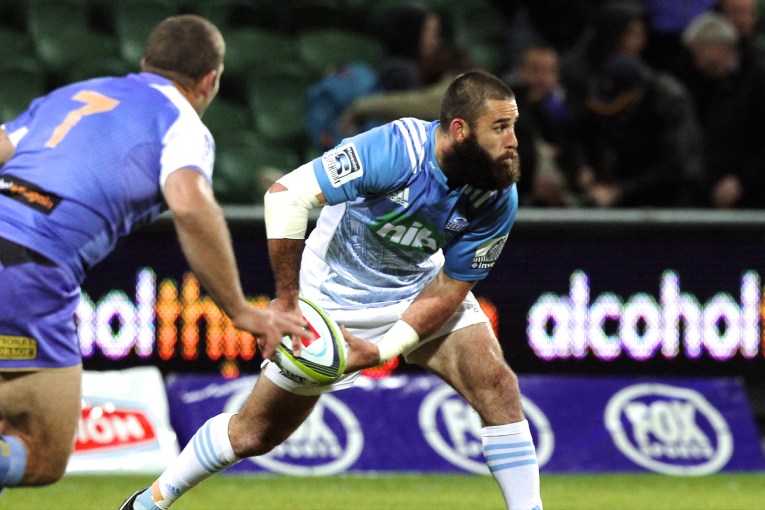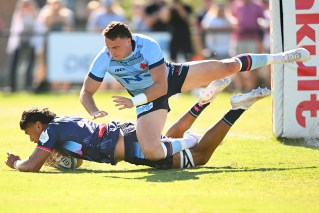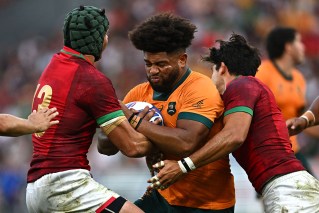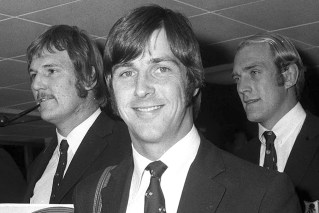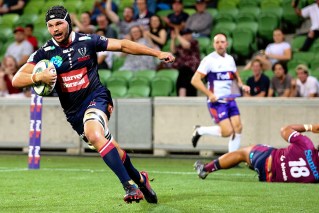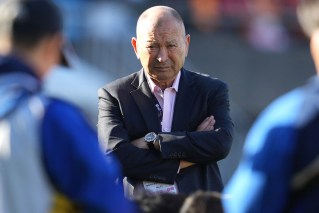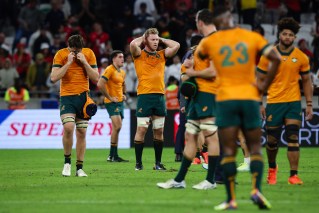How the Wallabies can pull off the impossible

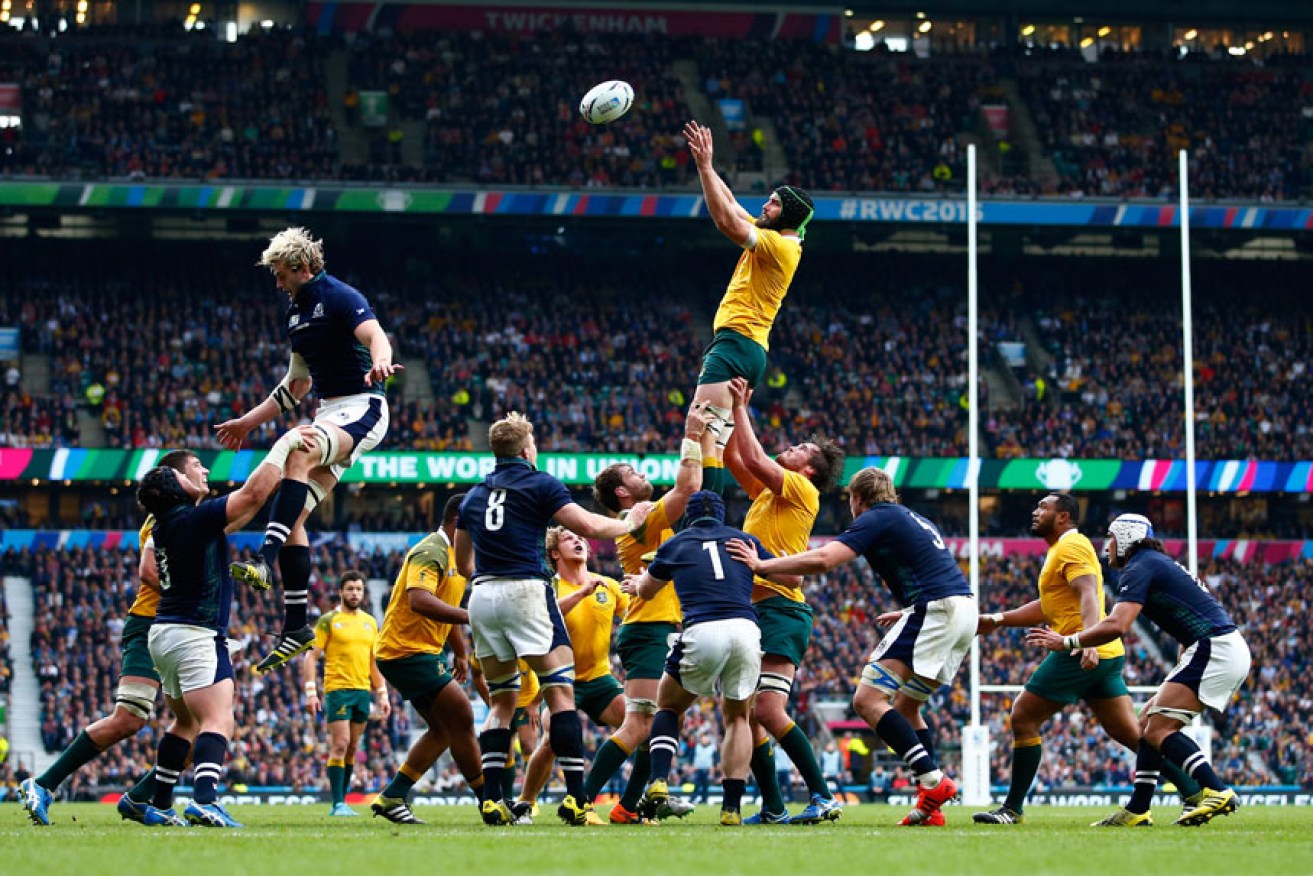
Australia will start this weekend’s mouthwatering World Cup final blockbuster against New Zealand as rank outsiders.
The Wallabies have won just one of their past 12 against the relentless defending champs, who boast some of the best players ever to lace on a boot.
• Pocock determined to create World Cup history
• Wallabies believe defence is key to World Cup final
• Wallabies at full strength for World Cup final
• Australia ‘can improve again’ for final
• Wallabies beat Pumas to set up All Blacks final
But aside from a fortuitous quarter-final escape against Scotland, the green-and-golds have been as impressive as any team at the tournament, while their upset win in Sydney less than three months ago proved the All Blacks are far from infallible.
Here’s how the Wallabies can cause another boilover and become the first nation to claim the Webb Ellis Trophy three times.
Replicate Sydney
Australia’s rousing 27-19 defeat of New Zealand in Sydney to clinch the Rugby Championship crown was buried under a humiliating 41-13 loss in Auckland seven days later that extended their Bledisloe Cup drought.
Importantly, however, 12 of the starting line-up from ANZ Stadium are set to run out at Twickenham (halfback Will Genia, and locks Rob Simmons and Kane Douglas are the additions) and another two will come off the bench.
In contrast, seven players who started in the Eden Park debacle won’t be among this weekend’s 23-man squad – including the likes of Quade Cooper and Wycliff Palu, who had shockers that night.
Michael Cheika’s first-choice, belatedly settled XV knows what it takes to beat the All Blacks.
The Wallabies’ wall
Aside from a blip in the quarter-final escape against Scotland, Australia’s defence has been almost impregnable, keeping their try-line intact against Uruguay, Wales and Argentina, and conceding just one late five-pointer against England.
The monumental 13-man effort on their own line to deny Wales is destined to go down in Wallabies folklore.

David Pocock was Herculean in Australia’s semi-final win against Argentina. Photo: Getty
Their line-speed and defensive desperation to constantly repel a daring Argentine outfit underpinned the semi-final success, and that type of aggressive, harrying work on the other side of the ball will be required again the decider.
Limiting the time Dan Carter has with the ball, and nullifying the impact of Ma’a Nonu, bench weapon Sonny Bill Williams and the ubiquitous Ben Smith will be at the crux of Cheika’s team briefings.
Pocock power
Kiwi pundits are certain to throw up a few other candidates, but Australian No.8 David Pocock holds the mantle as the best player in world rugby at present.
His dynamic, unflagging work in the loose and at the breakdown has been phenomenal throughout the tournament, while he forced four turnovers against the Pumas to spearhead the Wallabies’ 10-5 ascendancy in the turnovers won tally.
Exiting All Blacks icon Richie McCaw – arguably the greatest player of all time – will also leave it all out on the Twickenham pitch, but Pocock has slightly superior back-up.
McCaw’s No.7 opposite, Michael Hooper, has been in typically outstanding touch, while All Blacks No.8 Kieran Read, the 2013 IRB Player of the Year, has been worryingly out of sorts this season and has produced a string of butter-fingered performances at the World Cup.
Pocock’s influence was clearly missed as he sat out the Scotland cliffhanger with injury, but he was in irrepressible form last week and is primed for the game of a lifetime in the final.
How good! Such a tough game – credit to Argentina. Congrats to Hoops on his 50th cap! Thanks for all the support! pic.twitter.com/S5w3kDz1l1
— David Pocock (@pocockdavid) October 25, 2015
Scrum improvement
Scrum-time has been a source of embarrassment for the Wallabies’ engine-room for several years, but they have restored pride in the key set-piece area under the tutelage of Cheika and former Argentine great Mario Ledesma, dominating the traditionally powerful England and Wales packs during pool play.
The Pumas put the Wallabies’ scrum under immense pressure in the semi-final, however, with Australia losing two scrums and conceding four scrum penalties. Crucially, in-form prop Scott Sio is scheduled to return from injury after missing the semi, and his presence should rectify the shortcomings of last weekend.
Overall discipline is set to play a major role, too, after the Wallabies conceded five penalty goals against both Scotland and Argentina, taking a 12-6 buffeting in the penalty in the latter. Likewise, the All Blacks were caned 14-6 by the ref against South Africa.
Holy Foley
After finally rebuffing the erratic challenge of Quade Cooper for the No.10 jumper, Bernard Foley has been electrifying throughout this World Cup, commencing with two brilliant tries in a 28-point haul against England.
The diminutive Waratahs linchpin has the Wallabies’ backline humming, producing a breathtaking cut-out pass to send Adam Ashley-Cooper over for the first try of the semi-final, while his scything cover defence saved two certain first-half tries against Argentina.
A proven clutch performer, Foley overcame a mixed performance against Scotland to bury the match-winning penalty in the final minute. His duel with retiring flyhalf legend Dan Carter – in general play and off the kicking tee – could decide the result at Twickenham.
The weight of history
New Zealand supposedly shed the mental torment of two decades of World Cup failures by triumphing on home soil in 2011.
But their nerve-shredding 8-7 success over unfancied France in the final left the rest of the world less than convinced the perennial powerhouse had truly learned to cope with the stratospheric expectations placed on them by a rugby-mad nation.
And while the All Blacks are yet to taste World Cup glory overseas (a loss in the South Africa-hosted 1995 final is the closest they’ve come), the Wallabies secured both of their titles in Britain – winning the Twickenham final in 1991 and prevailing in the 1999 decider at Cardiff’s Millennium Stadium.
The All Blacks’ emphatic 20-6 win over the Wallabies in the 2011 semi-final quelled some demons, but the pain of shock semi defeats at the hands of Australia in 1991 (Dublin) and 2003 (Sydney) still lingers for most Kiwis.

